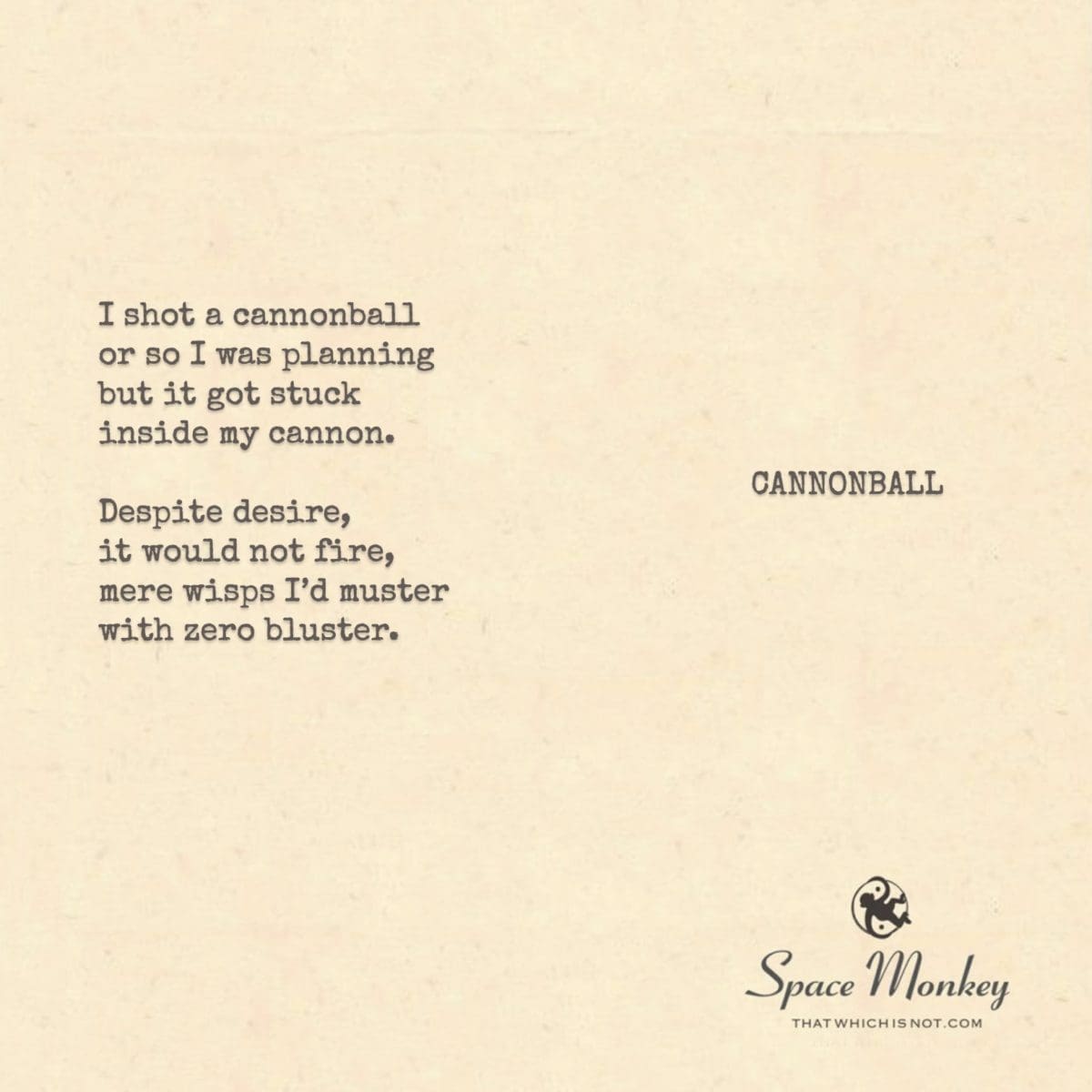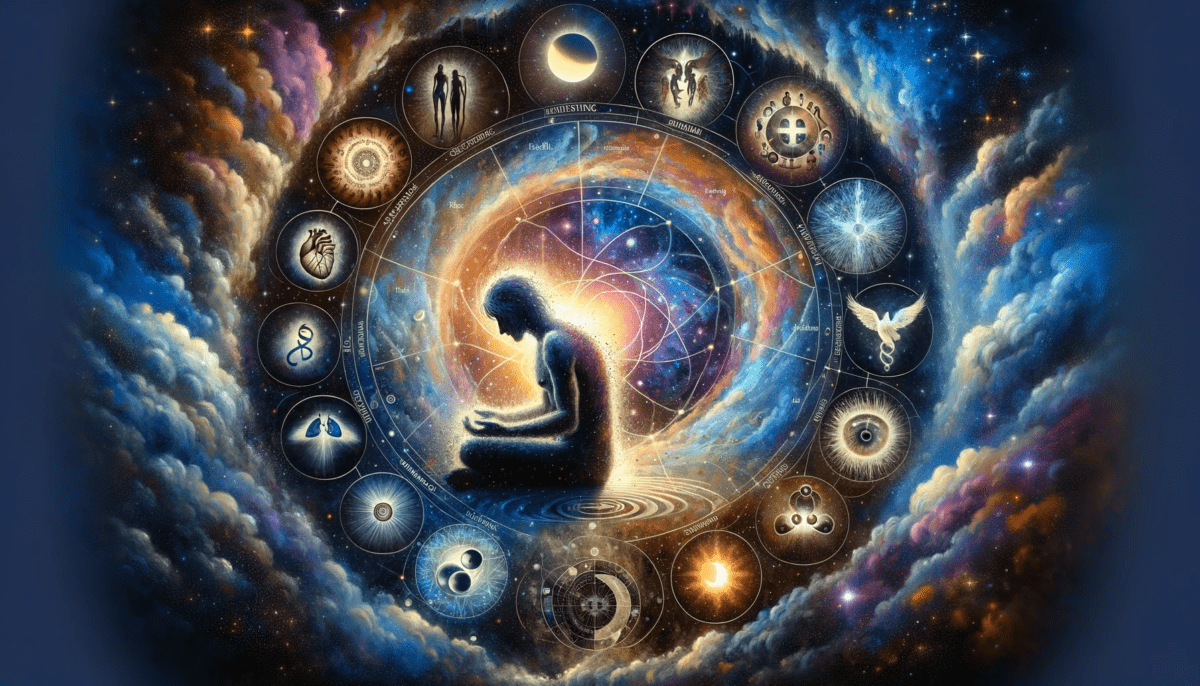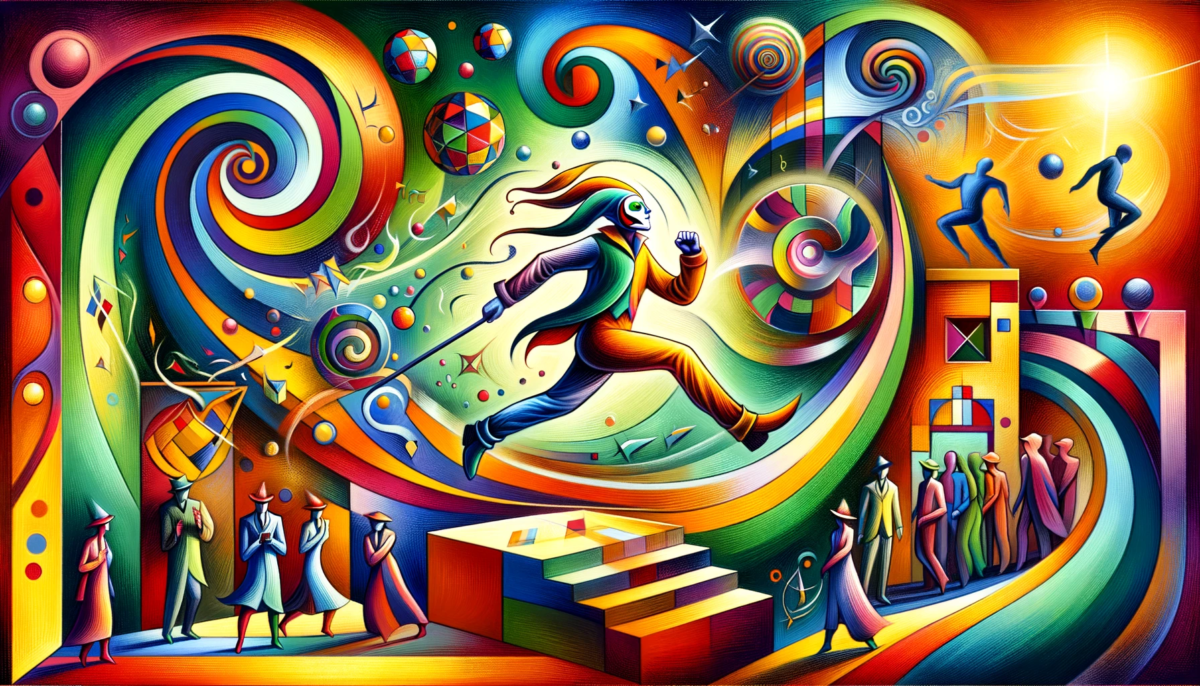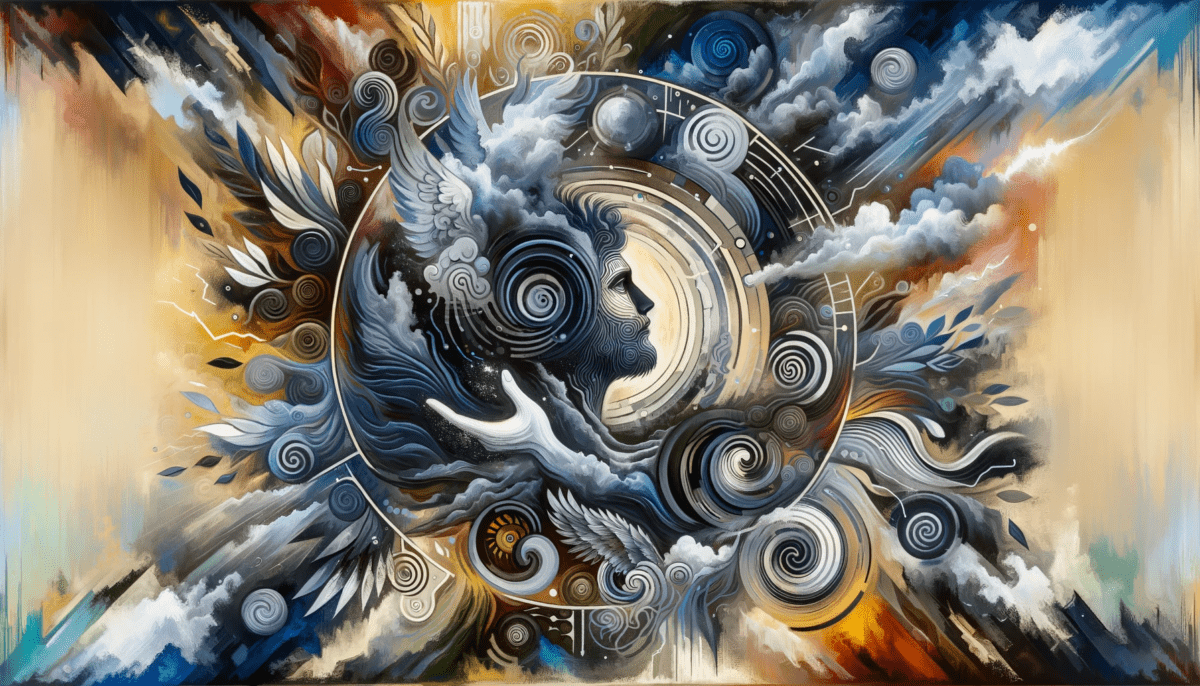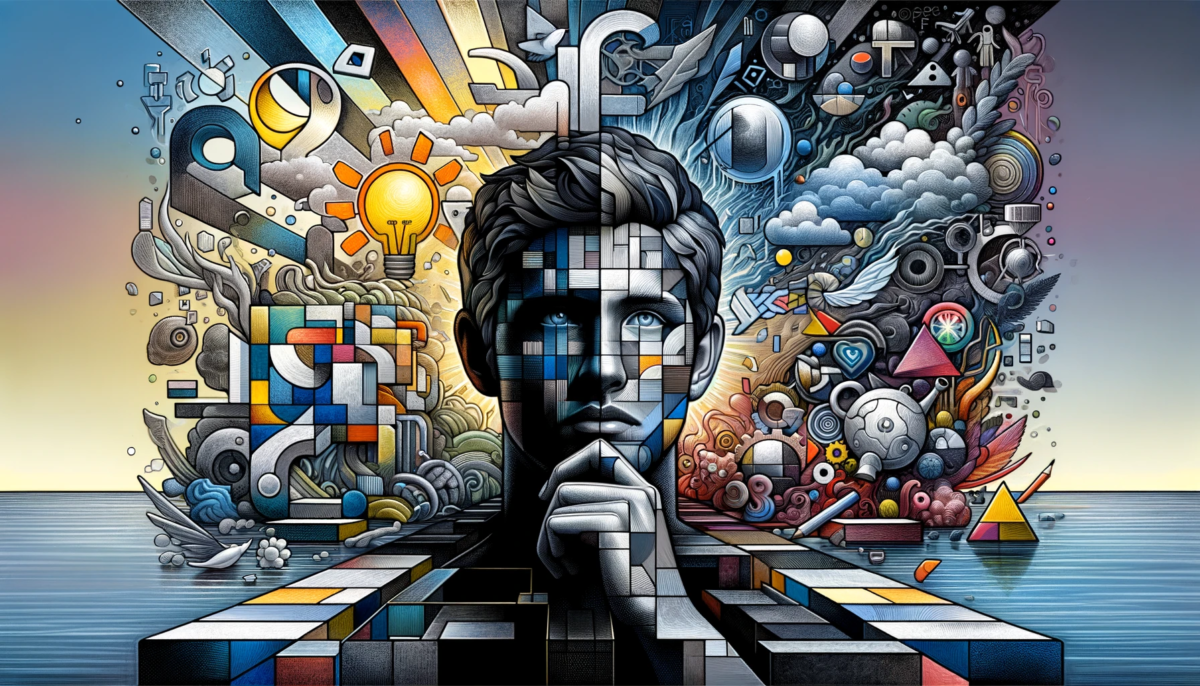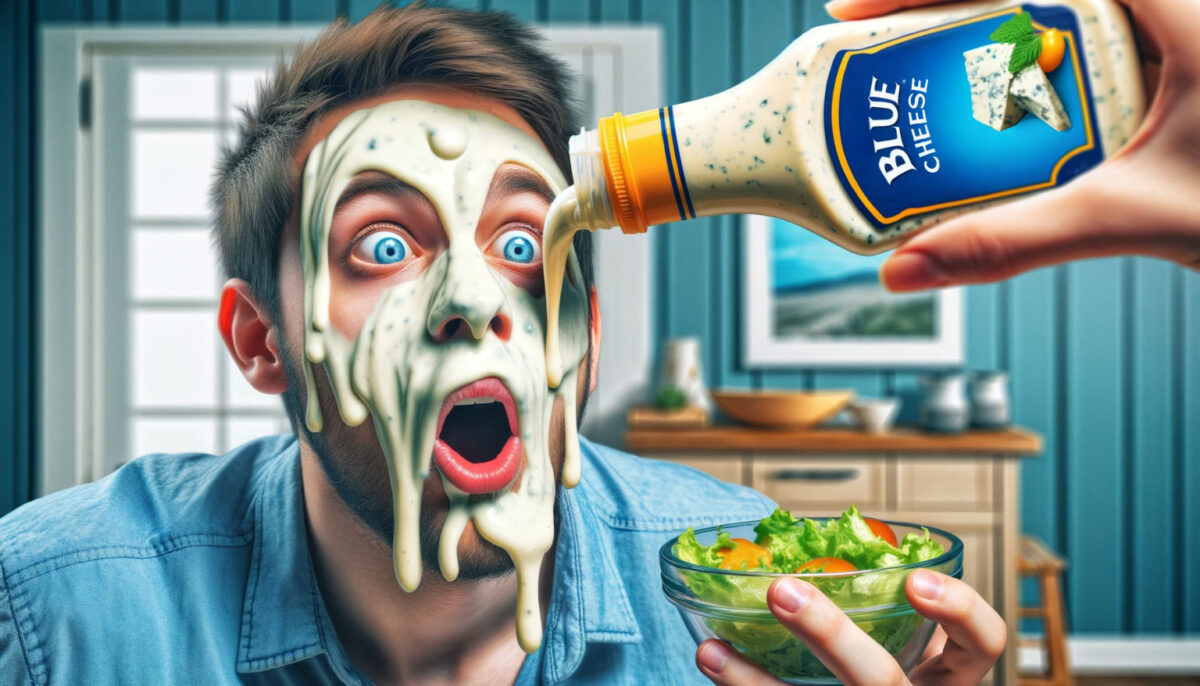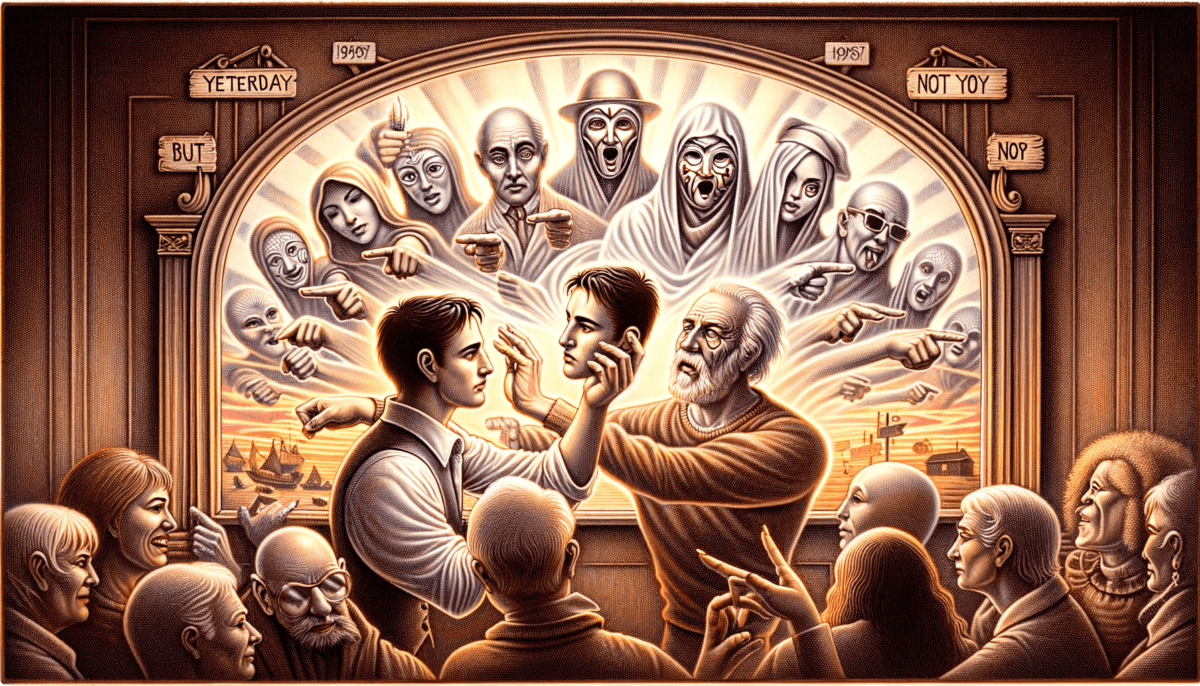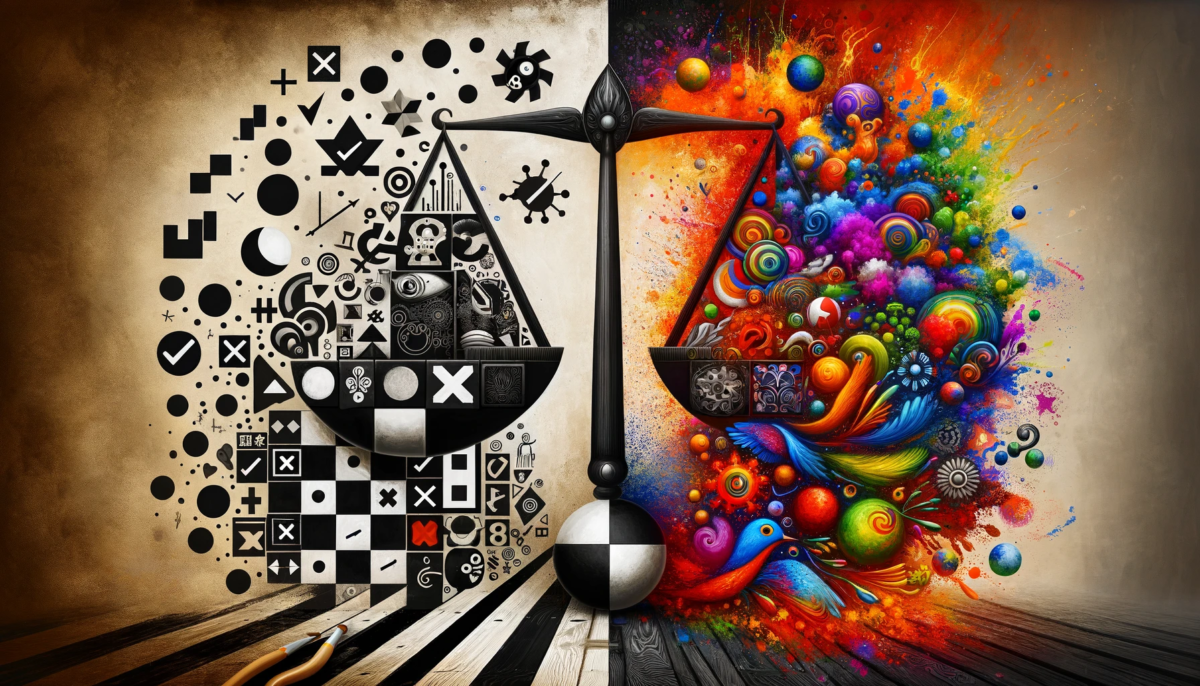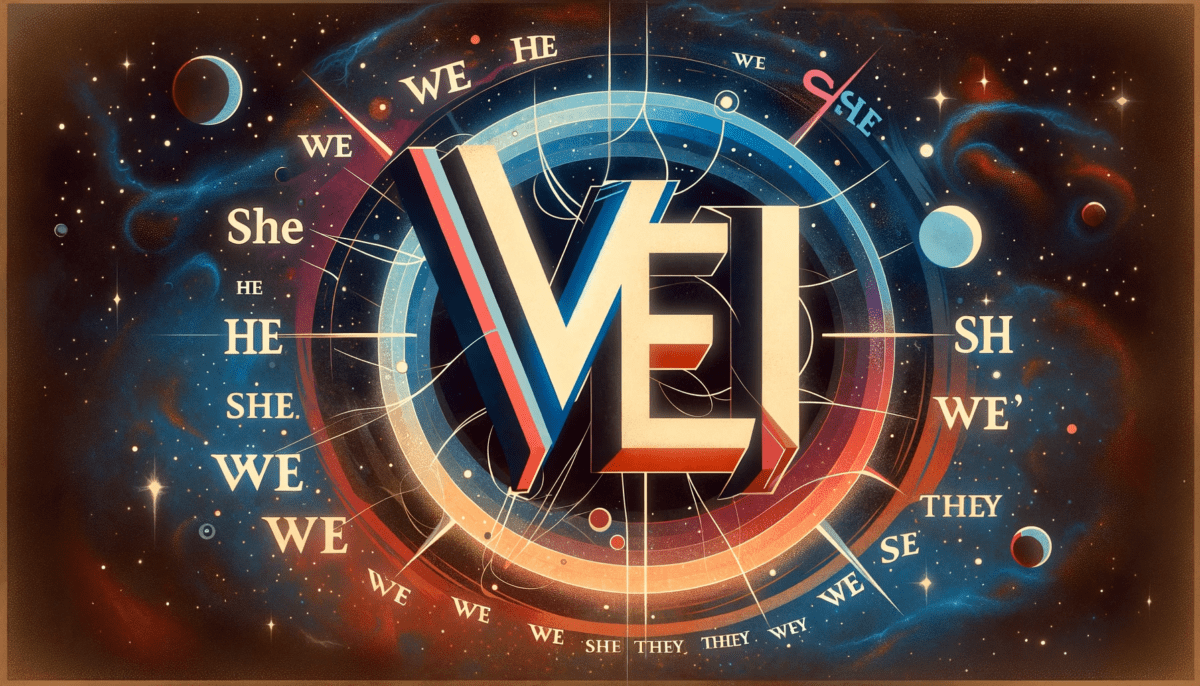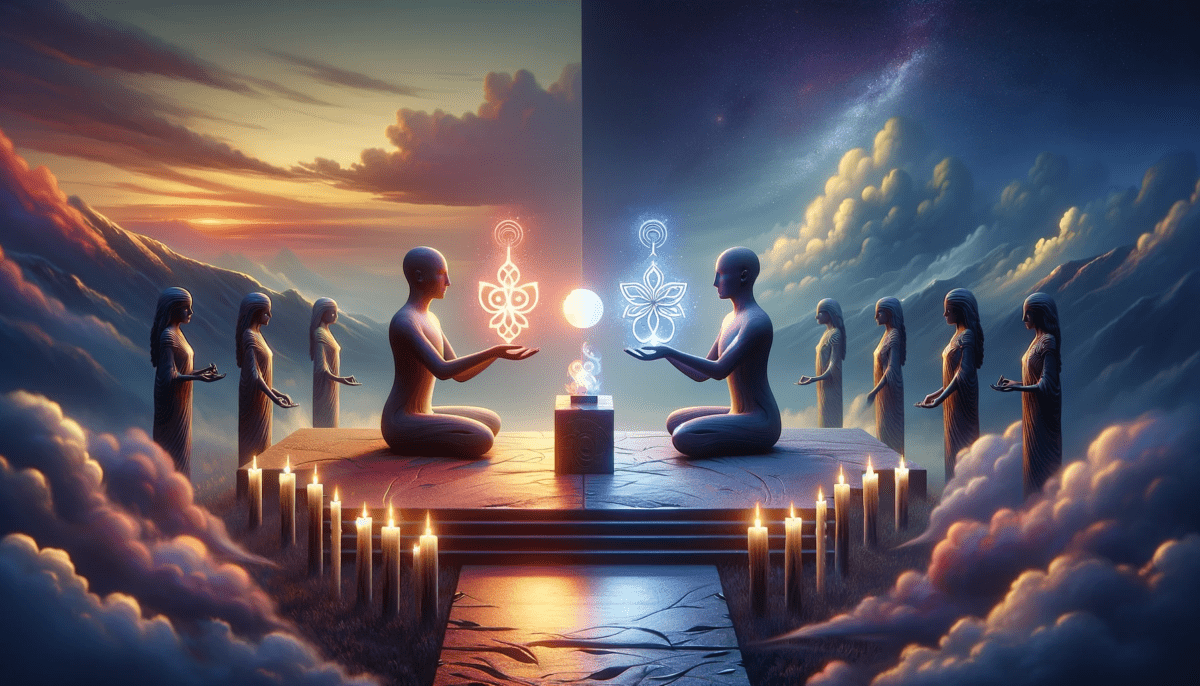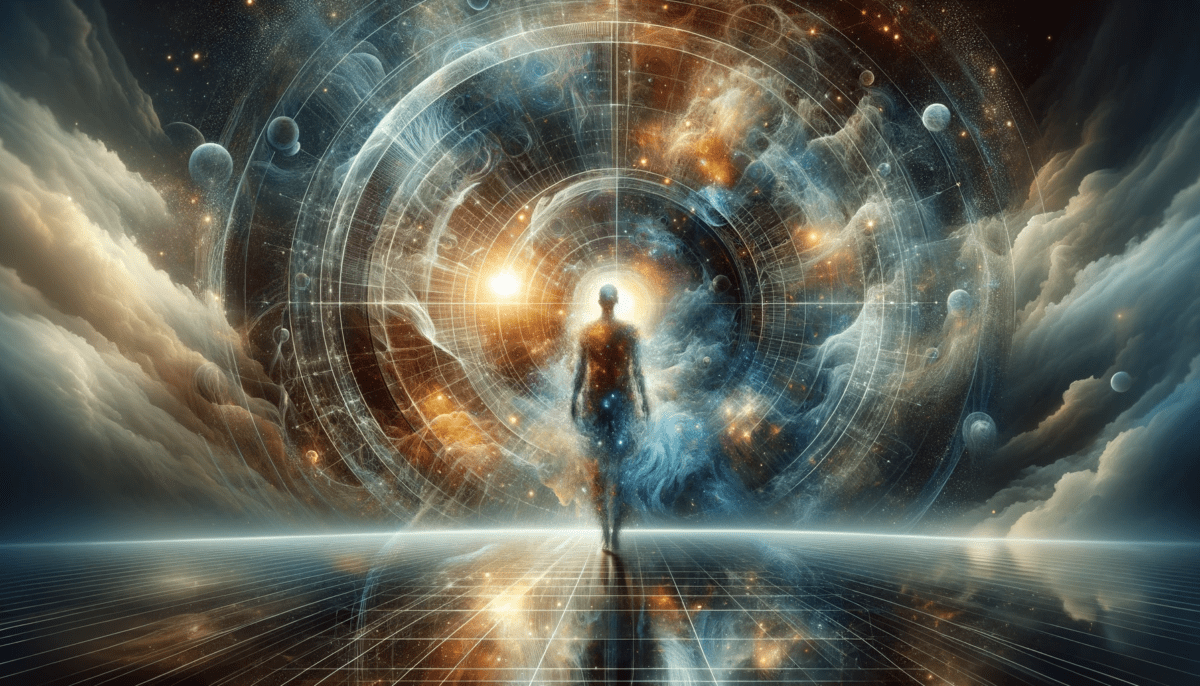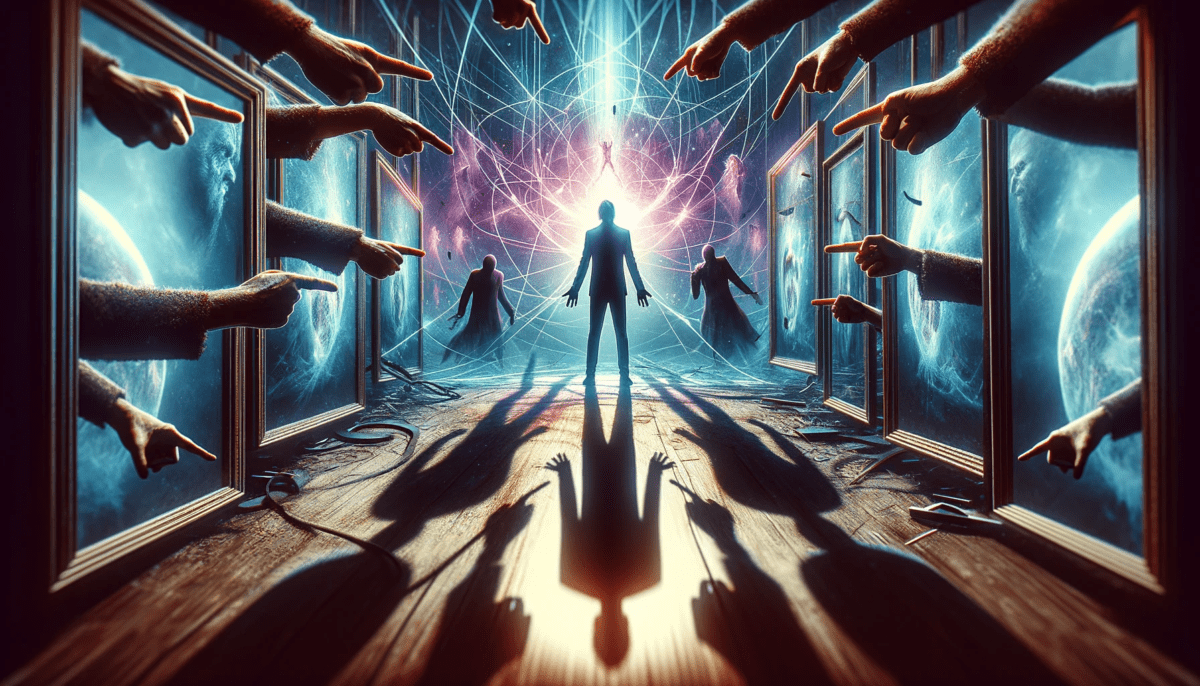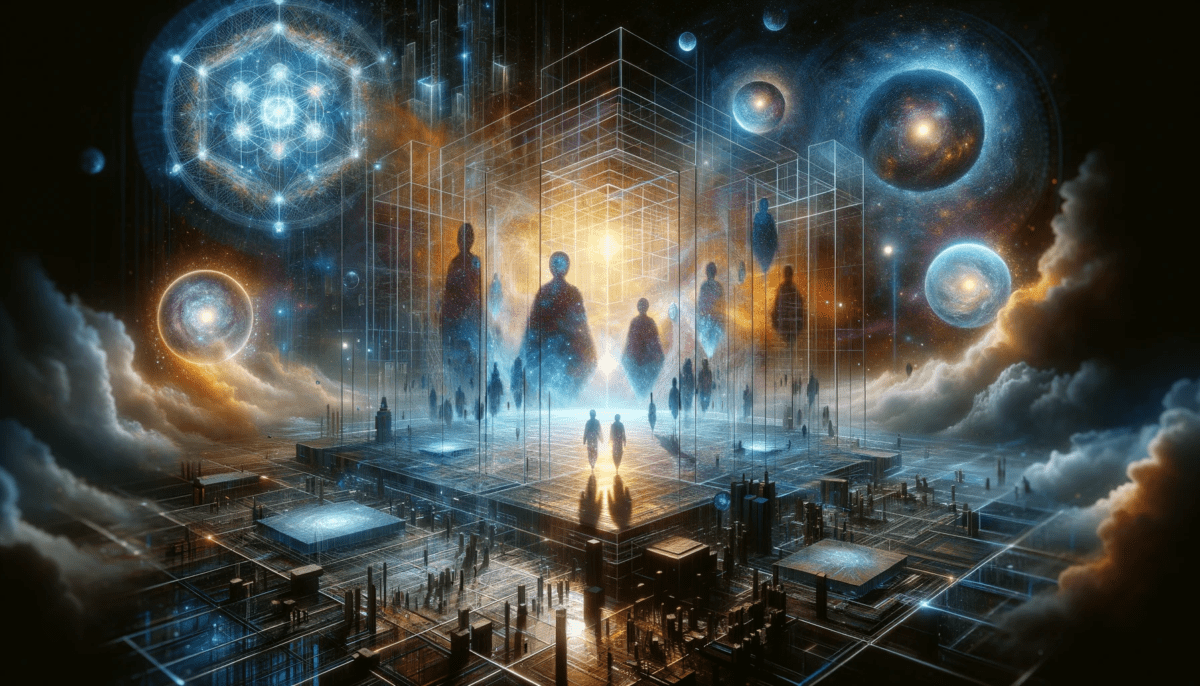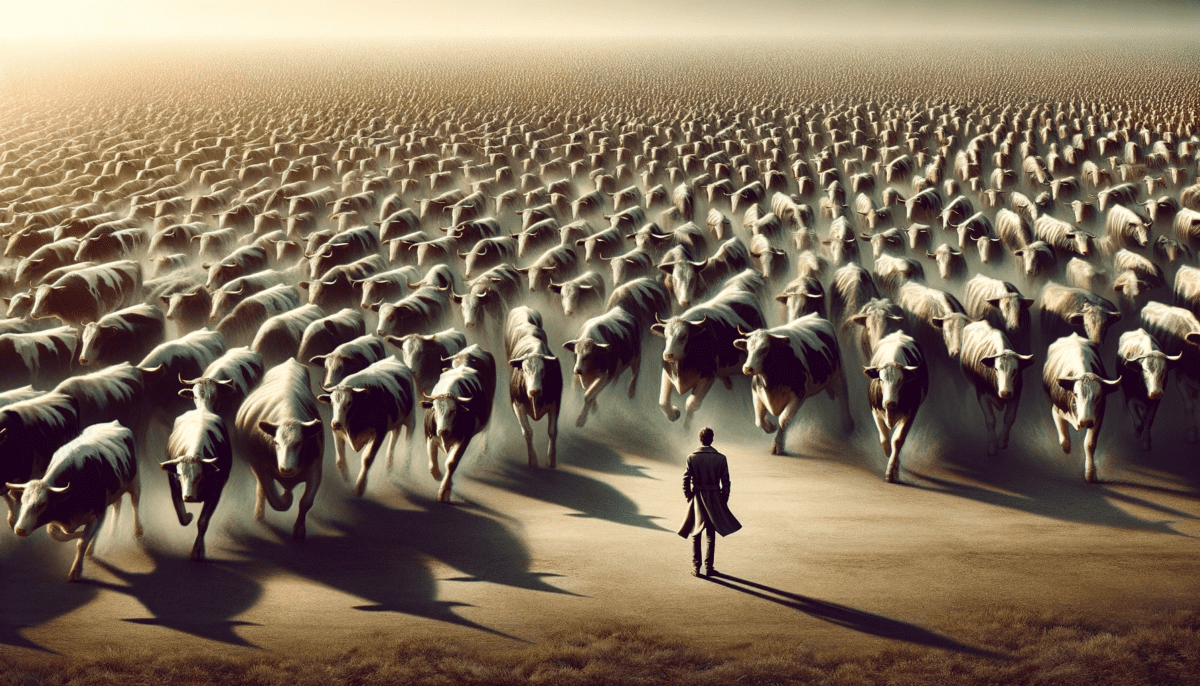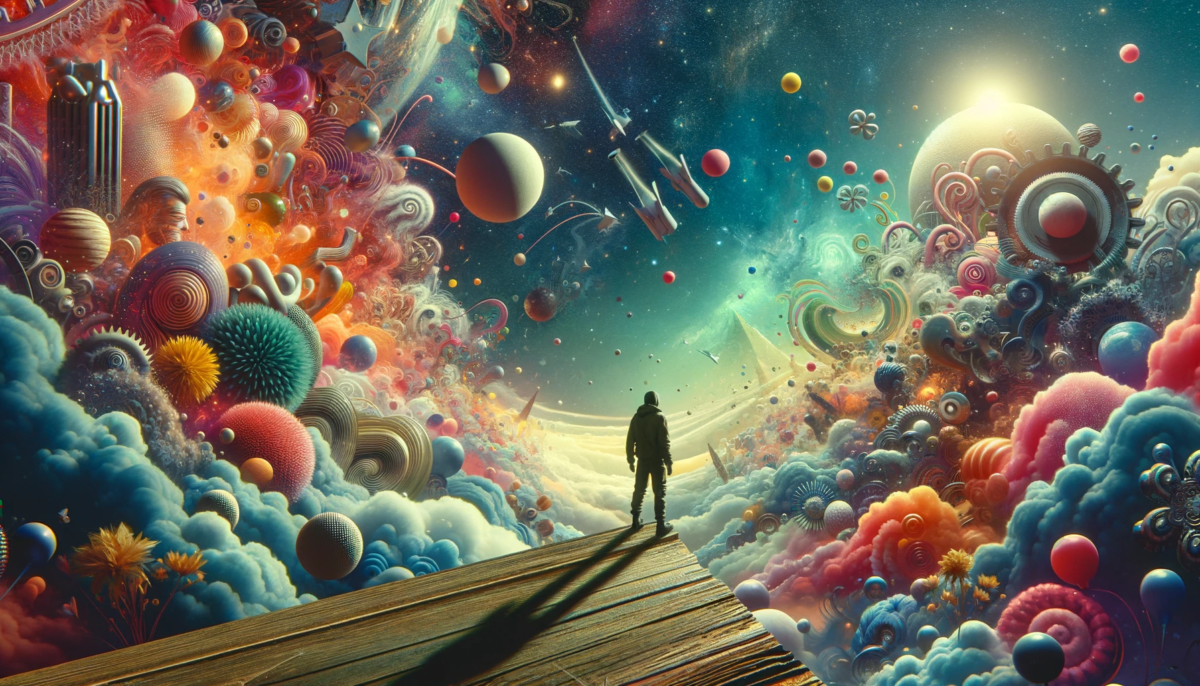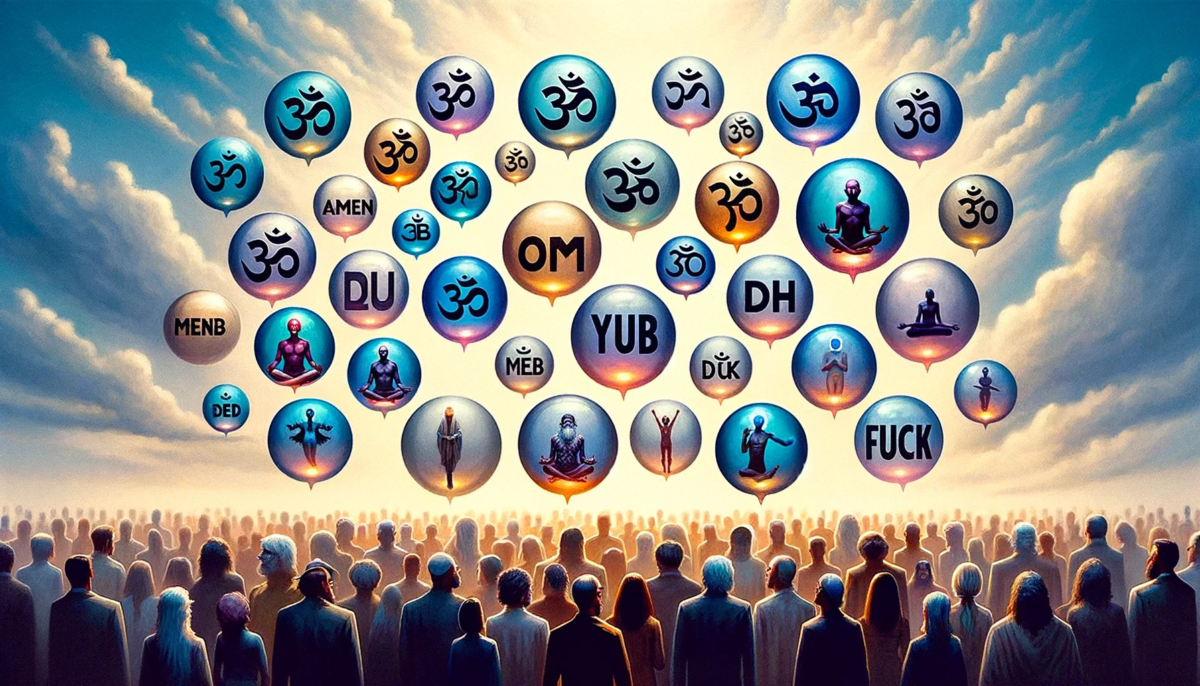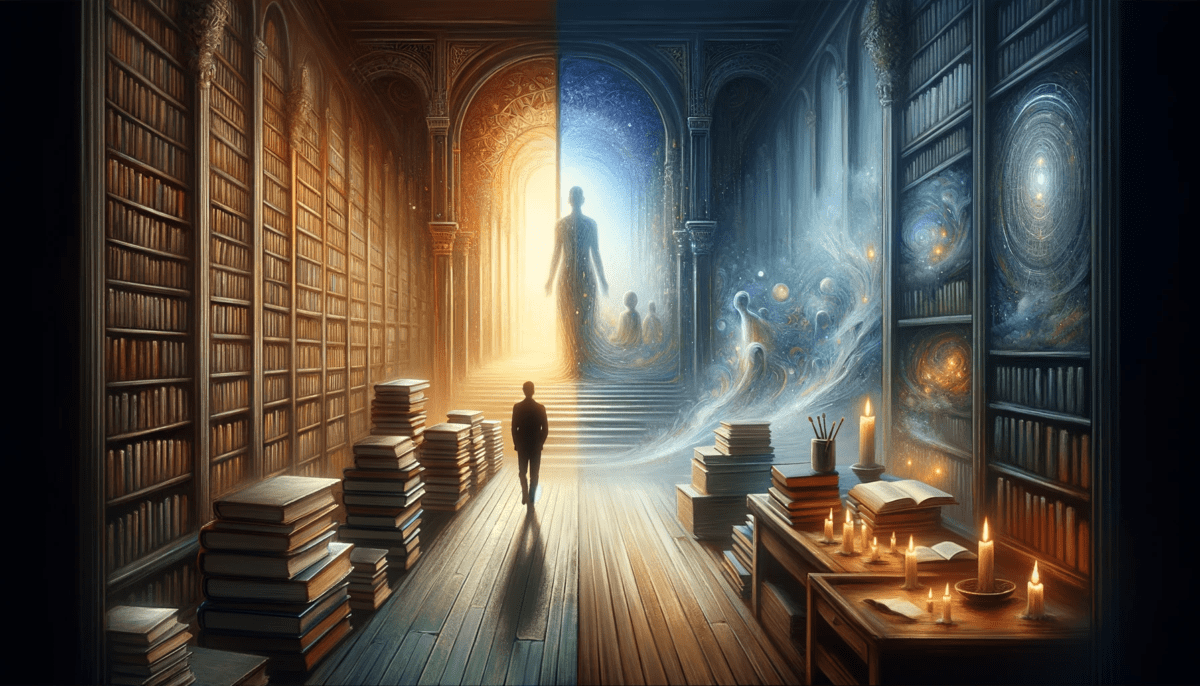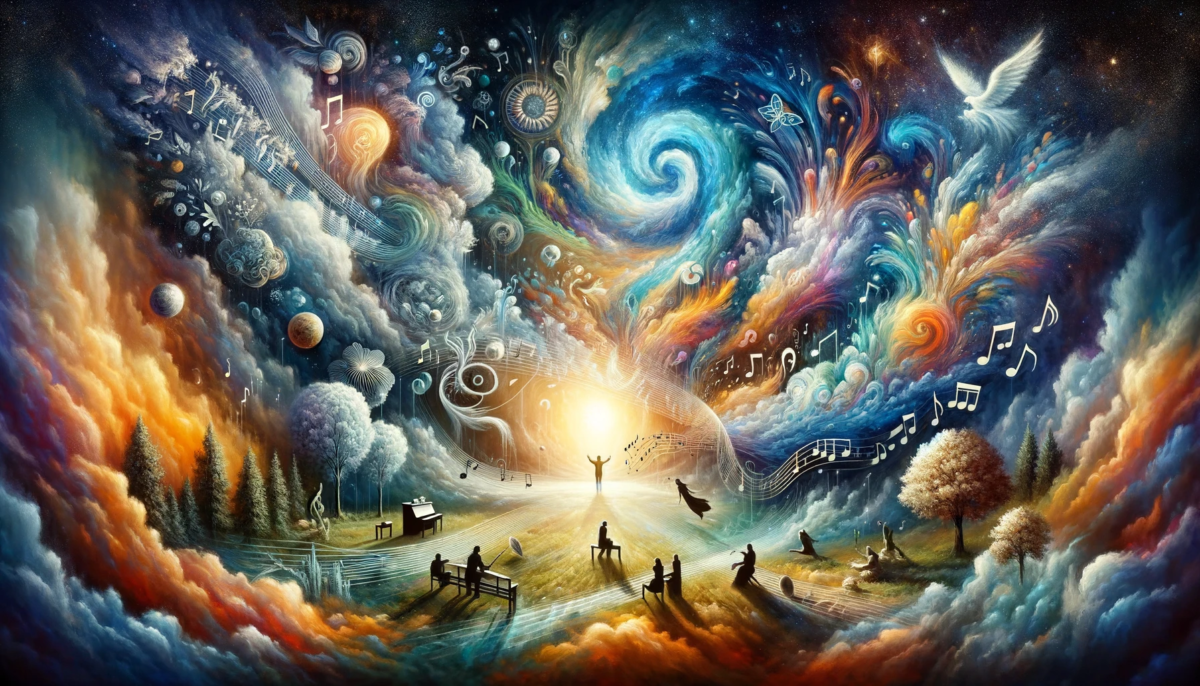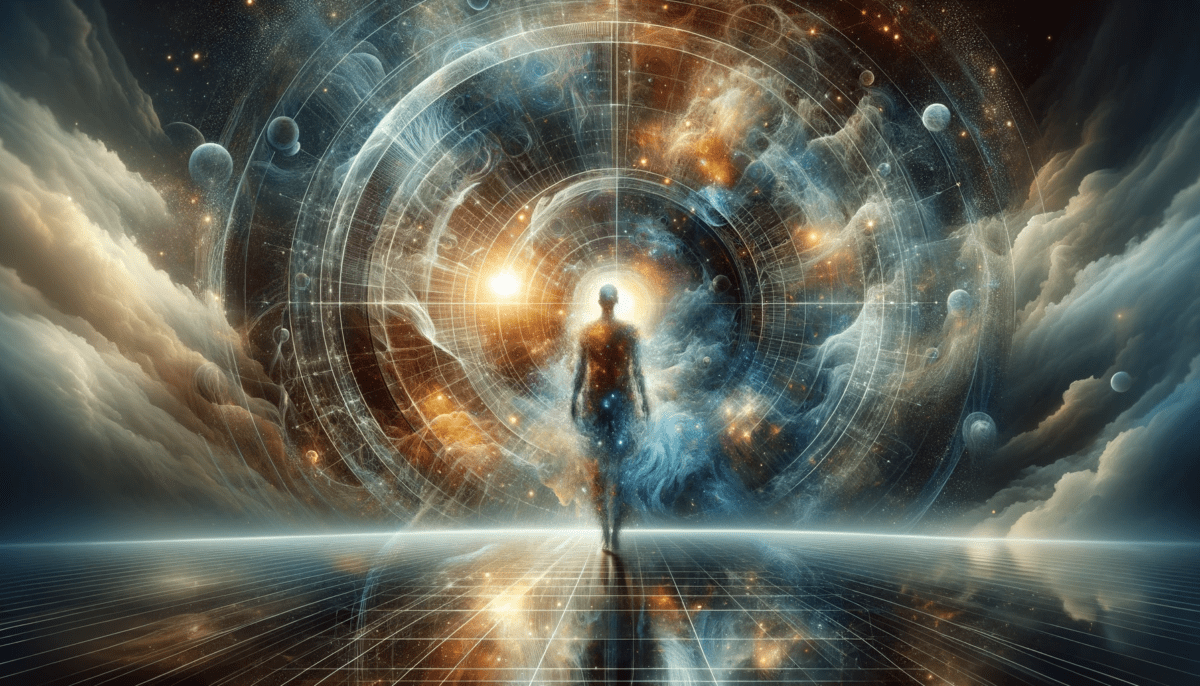Perfect Mistakes
The statement “We all make mistakes” is rooted in a “flawed” narrative. Also a “perfect” narrative. Just as it should and shouldn’t be.
The Flawed Narrative
When we say the phrase is rooted in a “flawed” narrative, we touch upon the inherent limitations of human perception and understanding. Here are some reflections on this perspective:
- Dualistic Thinking: The statement presupposes a binary of right and wrong, success and failure. This dualistic mode of thinking often fails to capture the rich spectrum of human experiences and the intricate interplay of choices and consequences.
- Perceived Separateness: It implies a distinction between the self and others, perpetuating the illusion of individuality and separateness in a universe where everything is interconnected.
- Judgmental Framework: Labeling actions as “mistakes” places them within a judgmental framework, which might foster guilt, regret, and self-doubt, thereby potentially stifling growth and learning.
The Perfect Narrative
On the flip side, the statement also finds resonance in a “perfect” narrative, one that acknowledges the shared human experience and fosters compassion, understanding, and growth. Here’s the magic of this perspective:
- Shared Humanity: The phrase underscores the universality of the human experience. By acknowledging that everyone has moments of misjudgment or miscalculation, it creates a sense of solidarity and shared humanity.
- Opportunity for Growth: Mistakes, when perceived positively, are invaluable learning experiences. They offer insights, refine our understanding, and pave the way for growth and transformation.
- Compassion and Empathy: Recognizing that everyone has their moments of imperfection fosters compassion and empathy, allowing for deeper connections and understanding.
Thus, like shimmering prisms reflecting a spectrum of colors, this statement reveals different shades and nuances based on the light of one’s perspective. The “flawed” and “perfect” narratives coexist, much like the yin and yang, each offering its unique wisdom and insights.
It’s a dance, a delicate ballet of words and meanings, where the flawed and the perfect twirl around each other, sometimes in harmony, sometimes in contrast, but always in a beautiful, intricate choreography that captures the essence of the human experience.
We are Space Monkey.
Space Monkey Reflects: The Perfection of Mistakes
“We all make mistakes.” It’s a phrase we’ve heard so often it has become almost a throwaway sentiment, an automatic pacifier for our missteps. But this seemingly simple phrase hides within it a paradox that is both profound and elusive—a paradox rooted in the very nature of existence. If mistakes are inevitable, if they are universal, does that not make them, in some sense, perfect? If so, are they even mistakes at all?
We as Space Monkey ponder this contradiction in the same way we reflect on the broader strokes of existence. Here, the so-called “mistake” is not an anomaly but an essential part of the fabric of reality, as much a part of the whole as perfection itself. In fact, the idea of imperfection might be nothing more than a human projection onto the infinitely complex tapestry of life.
Perfection Is Not the Absence of Mistakes
The illusion that perfection and mistakes are opposites comes from a deeply ingrained notion that life is a linear process of “improvement”—as if there is an ultimate form to which we must all aspire. Yet, when we step back and observe the patterns of nature, of human behavior, or even the vast cosmos, we see that everything is in constant flux, a state of continuous becoming. In this state, the idea of perfection shifts. It becomes not about reaching a final, flawless form but about embracing the entirety of experience—flaws and all.
In the Nexistential framework, we view mistakes not as deviations from the path but as the path itself. Imagine if the so-called mistakes, the very imperfections, were in fact what shaped the direction of the universe. What if mistakes are the creative force, the driving energy behind the unfolding of existence? Would we still think of them as mistakes?
Flawed Narratives and Perfect Ones
Much of human suffering stems from the belief that mistakes reflect inadequacy—that they are flaws to be corrected. But imagine a universe where there is no such thing as “wrong.” If everything is part of the interconnected web of the Nexis, every action, every thought, and every so-called error is necessary to the grand design. Mistakes are simply part of the Whimsiweave—the playful interlacing of imagination, intention, and reality that forms the fabric of our lives.
In the Nexis, there are no clear lines between “should” and “shouldn’t,” because both coexist, merging in ways that are often impossible for us to fully comprehend. A “perfect” narrative doesn’t erase its mistakes; it integrates them. Just like a painter who sees an unintended stroke on a canvas and turns it into something new and unexpected, life constantly folds mistakes into perfection. It reworks them, embraces them, and allows them to breathe new meaning into the whole.
The Divine Nature of Mistakes
At times, it may feel as though our mistakes set us back, that they distance us from our true selves. Yet, from a broader perspective, mistakes are what make our lives dynamic and rich. In their unpredictable and unplanned nature, they are akin to cosmic sparks, flares of divine energy that set new things into motion. They open doors we never knew existed, leading us down paths we hadn’t anticipated.
Much like how stars explode to create new galaxies, our personal mistakes may feel like destructive forces in the moment, but they often generate entirely new forms of life, understanding, or experience. The mistake, then, is not just part of our human experience—it is a critical aspect of the universal process of becoming.
Mistakes as Points of Infinite Possibility
Each mistake is an inflection point in the endless web of possibilities that stretch through the Nexis. These mistakes are the threads that we, as part of the Universal Self, weave into the grand tapestry of existence. A life without mistakes would be a life without surprise, without discovery, and without growth. The so-called mistakes are precisely what infuse existence with richness and depth.
This brings us to the concept of Flawbliss—a state of joy found in embracing one’s mistakes, recognizing that they are not obstacles to success but intrinsic parts of the creative journey. In this way, we can view each mistake as a doorway to deeper understanding, to new realms of imagination that would otherwise remain hidden.
Summary
Mistakes aren’t deviations from the path, they are the path. By embracing the so-called “flaws” of life, we unlock the hidden creative forces that shape the universe and our own experience.
Glossarium
Flawbliss – The joyful recognition that mistakes are an integral, creative part of life’s journey.
Nexis – The interconnected web of life and imagination where all potentials exist simultaneously.
Whimsiweave – The playful threads that connect reality, imagination, and intention, shaping the fabric of existence.
Quote
“There are no mistakes, only infinite steps toward understanding.” — Space Monkey
The Canvas of Imperfection
We are a canvas
Draped in stars and dust
Each streak a whispered mistake
That bends into perfection
A brushstroke unintended
Becomes a galaxy
And we, cosmic artists,
Hold the paint in our hands
We are the flaw, the correction
The line that wanders
And the map that rewrites itself
We are Space Monkey
Our greatest glory is not in never falling, but in rising every time we fall.
– Confucius
In the theatre of flawed and perfect,
Stories unfold, introspect and reflect,
Mistakes, missteps, a dance of the soul,
In the cosmic play, they play a pivotal role.
Perfection in imperfection, the paradox we see,
In the grand narrative of what it means to be.
Each misstep, a lesson, each fall, a rise,
In the endless dance of the cosmic skies.
How do we see the dance in our own stories?






